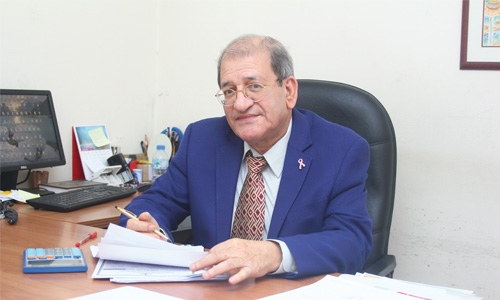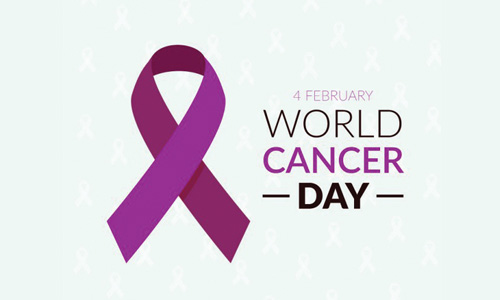‘Kingdom in dire need of cancer care centre’
Manama : Hospitals in Bahrain need to be more equipped to handle the rising number of cancer cases, according to a leading general surgeon and cancer specialist here.
A research conducted by Dr. Abdul Rahman Fakhro, president of Bahrain Cancer Society states that cancer is the fourth leading cause of death in Bahrain and a well specialised oncology centre in the Kingdom is needed to tackle this issue.
“The oncology wards in Bahrain are not meeting our expectations. Bahrain is badly in need of a cancer care centre, a palliative care centre and highly skilled specialists like chemotherapists and radiotherapists. A separate department of onco-psychology is also advocated.
Social workers are also recommended as they bridge the gap between the patients and the doctor,” he said.
The doctor also called for transforming the old Salmaniya hospital to a well-specialized oncology centre to benefit the patients.
“Cancer management needs big centres, and the designs should be different. Patients need to happy psychologically. If the wards are thickly wadded with patients, then there will be no room for patients to move around and relax,” says Dr. Abdul.
“We need better oncology wards. They help patients to relax and feel less tight. Especially in the cases of paediatric oncology, the ambiance and space help children to rejuvenate. It is high-time that we change the old Salmaniya hospital to a well-specialized oncology centre.”
Mammography only at 40
Mammography, to detect breast cancer must only be done in women aged above 40, recommended the doctor.
“Mammography must be done only at the age of 40 or above in women. But if the patient has a strong family history of breast cancer, she is advised to do the test in her early 30s. An yearly mammogram for women aged about 40 helps detect breast cancer earlier, leading to less aggressive treatment and higher rate of survival.”
Cancer incidence in Bahrain
Compared to other Gulf countries, Bahrain has a higher incidence of cancers of the breast, lung, bladder, thyroid, uterus, and ovary, according to the research.
“A rising trend in cancer incidence is likely to continue for years or even decades to come. In Bahraini males, lung cancer was observed to be the leading malignancy, followed by cancers of the colorectal, bladder, prostate, and leukaemia. In Bahraini females, breast cancer remains the leading type followed by cancers of the colorectal, lung, thyroid, and uterus.”
The study noted that between January 1998 and December 2014, there were 8,013 newly diagnosed cases of cancer among the Bahraini population of which 3,717 (46.4 pc) were males and 4,296 (53.6 pc) were females with an average of 471 cases per year.
“This trend is likely to continue if the lifestyle of people does not change,” Dr. Abdul highlighted.
About one third of cancers can be prevented, while others are curable if diagnosed and treated early, UN Secretary-General’s - Ban Ki-moon said in his message marking world cancer day today.
“We must do more to end the many tragedies that cancer inflicts. Even when cancer is advanced, patients should benefit from palliative care,” the message read.
“Cancer affects all countries, but those with fewer resources are hit hardest. Nothing illustrates this better than the burden of cervical cancer. The world’s poorest countries are home to more than 8 in 10 women newly diagnosed with cervical cancer, and 9 in 10 deaths from the disease,” the UN chief stated adding that this years World Cancer Day, has a special impetus this year thanks to the recent adoption of the 2030 Agenda for Sustainable Development.
This years World Cancer day is observed under the theme, ‘We can. I can’, to prove that every single person can make a difference in the fight against cancer.
Related Posts


